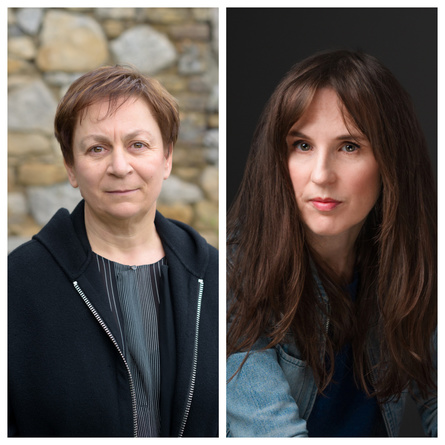Anne Enright and Claire Kilroy graced the Dublin Book Festival on November 12th with a panel centring on their critically acclaimed new novels, moderated by poet Jessica Traynor. Called the “biggest ever” iteration of the festival, Enright, Kilroy and Traynor’s conversation was arguably the crowning jewel of a week full of literary events.
Both authors’ new works in some way address the modern Irish family and, more specifically, how women and mothers fit into it. They’ve also been individually praised for subverting the style of the traditional novel, be it through the addition of poetry or unique prose decisions.
The Wren, The Wren traverses generations of a family, exploring inheritance and what it means to follow in a family member’s footsteps. Although Enright explained that The Wren, The Wren’s Carmel is less of a mother than “a person who just had a baby fall out of her,” she maintained that the relationship between Carmel and her daughter Nell serves as a bona fide centrepiece for Nell’s journey of self-discovery. Enright also discussed the intricacies of including poetry in her novel. Phil, father to Carmel, Nell’s grandfather and famous poet, is an ever-present shadow in the story: some of his poetry is even written into the novel. For Enright, who once described her life as “rocking the pram with one hand and typing with the other”, The Wren, The Wren is equal parts introspective and fantasised.
Kilroy’s novel Soldier Sailor, which was released earlier this year, tackles themes of motherhood and marital isolation through an unnamed mother’s – Soldier’s – address to her son, only referred to as Sailor. The book has been praised for its strikingly accurate portrayal of postpartum depression and unique confessional style. During the panel, Kilroy discussed how her own experience as a mother, both good and bad, informed the novel which was her first in eleven years. She read from a passage in the novel detailing Soldier’s friend and her son sharing a moment, in which Soldier meditates on her own relationship with her son. The excerpt captured the true desperation with which Kilroy writes in Soldier, Sailor, what feels like a near last-ditch attempt at conquering postnatal depression.
Kilroy also reflected on how the novel, and by extension the experience of motherhood, takes place in relatively very few locations, mentioning the kitchen and the playground as frequent spots for Soldier and Sailor in the novel. Kilroy spoke about using these relatively mundane locations as symbolic landscapes that outline the complexities of raising a child. Kilroy’s own understanding of motherhood shone through both in the discussion and in the reading of the excerpt, with one audience member questioning how she seemed so knowledgeable for being a relatively young mother. It’s clear to see that Kilroy, who has arguably made herself a permanent fixture in Irish fiction, has a certain way of getting straight to the heart of things; she writes with particular dexterity about watching a child grow old, contemplating both Soldier and Sailor’s mortality, despite being a mother of a young child herself.
Enright and Kilroy’s discussion, with Traynor’s insightful questioning, certainly raised questions about the place mothers have in contemporary Irish society, as well as the identity of someone becoming a mother. Both authors’ experiences as mothers gave them the space and knowledge to provide an insightful look into what it means to be both a woman and an author while simultaneously acting as a leader in the Irish literary canon.








